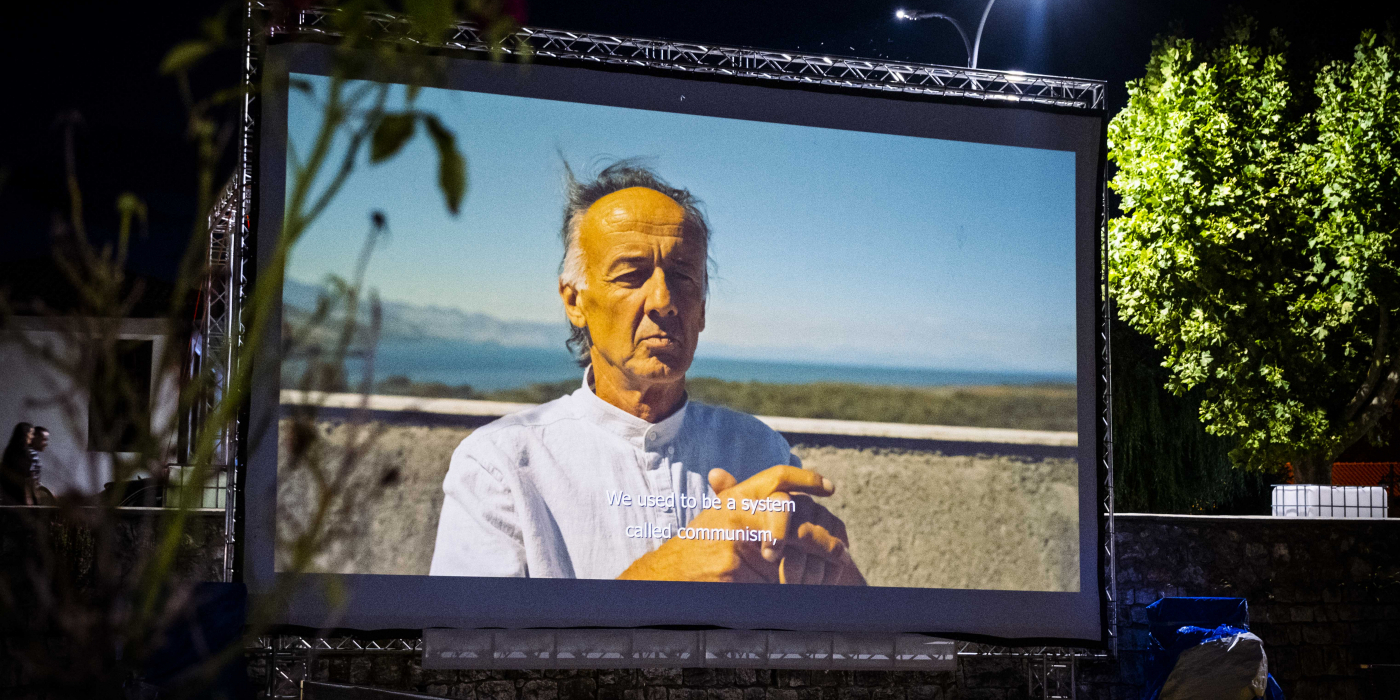07/08/2023
This write-up on the Balkan Dox at DokuFest introduces the historical stories, and also those that focus on reconnecting, amending and healing wounds of time.
Firstly, The Silence of the Banana Trees by Eneos Çarka (a member of the young generation of Albanian filmmakers) reveals the story of a father who wants to reconnect with his daughter Reka. This is a poignant story of how the past cannot be undone and that hard decisions sometimes result in solitude and sorrow.
The audience got the chance to meet the director of Stuntwomen (Cascadeuses) by Elena Avdija. Avdija worked on the story for 10 years, in which she reflects upon three women working as stunt women in the European and American film industries. The Hollywood and European standards for stuntpeople differ while the conditions and hardships of women working in this field do not. But the thrill is there, even if the characters break some bones. Avdija spoke to the audience about how the process of this film developed, offering us an inside view of the filmmaking. She says “It took me a lot of time to do this film, and in the beginning, it was a fascination about the backstage industry of cinema, because in fiction you think everything is real, while in cinema we cheat but it has the look of reality but to me, all resided in the question, how do you make violence look real.”
Then comes Three Sparks, directed by Naomi Uman, which explores the stories of three women. The camera follows their daily routine as well as their culture living in rural Albania. While some of the film feeds into stereotypes, there is so much more to the reality of their slow-paced lives: traditions, culture, and incredible hard work. For another chance to watch this film, go to Lumbardhi Bahçe tomorrow (08/08) at 20:00.
The Balkan Dox film category is a mirror, a river of lives and memories: we just need to take a step in and feel the water.
From Albania, we then go to Croatia for The House in Kraljevec, a film documentary directed by Pero Kvesić, who is also an author. He has a multifaceted personality and mentored and created a space for writers, creators, and talented individuals. The creators lived in a house together for 15 years and many of them went on to document the stories of their era, writing them and seeking artistic liberation and experimentation.
The house has now changed and has a family living in it. The film presents dialogue between the creatives who lived there before as they reminisce on their time there. After the screening, the audience had a chance to meet the producer and get more insights into this story of defining an artistic wave which underwent eras of change. In the talk after the screening, the producer explained the need to make documentaries such as this, in order to tell stories.
There are many more films in the Balkan Dox, category and we will write up on the others too. This Balkan Dox journey ends for now with Alexander, a film directed by Artan Sadiku, which follows the story of a man who hijacked a warship in 1988, in Albania, during the dictatorship. He took a grave risk by doing this and in the film we meet his family and 18 people who wanted to flee the system. They tell their stories 33 years after a series of losses and migration.
If you want to see more Balkan Dox films, check out the program and scheduling time and do not miss these important stories which connect the past, the present, and the future, paving the way for peace and hope.
By: Blerina Kanxha
Photo: Agon Dana



